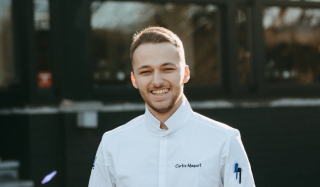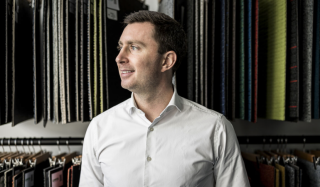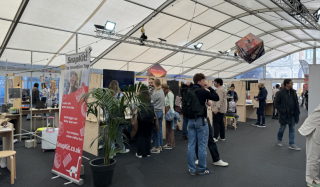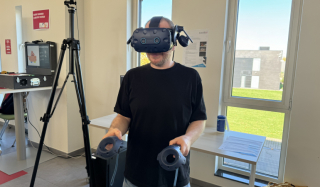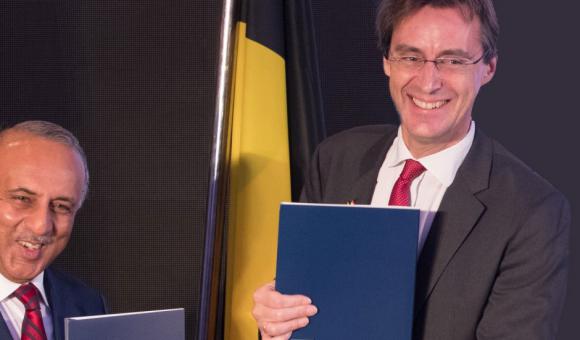
A cooperation agreement has been signed between the Catholic University of Louvain (UCL - Louvain-la-Neuve) and the Indian Institute of Technology in Indore (ITTI) at the centre in India on the occasion of the State Visit of King Philippe and Queen Mathilde of Belgium to New Delhi.
Founded in 2009, this Indian Institute of Technology specialises in cutting-edge interdisciplinary research and is internationally recognised. It is involved in many international projects and works with research organisations in many countries, including Japan, South Korea, Russia, Portugal, France, Germany, United States and now Belgium.
This partnership is a result of an encounter between two researchers both devoted to microelectronics. Professor Jean-Pierre Raskin hosted Abhinav Kranti for his post-doctoral studies between 2002 and 2004 at his laboratory at UCL. At the time, the young Indian researcher was working on modelling a new type of silicon transistors, the basic unit for all electronic circuits. UCL's researchers benefit from well-established experimental resources which allow the production and physical characterisation of electronic devices. IIT's researchers specialise more in modelling new transistors.
Jean-Pierre Raskin and Abhinav Kranti succeeded in taking advantage of their respective competences and have strengthened their collaboration over the years even after Abhinav Kranti's departure. After several years of post-doctoral studies at other Institutions, the young researcher obtained a post-academic position at the IIT and developed his own research team. "It is essential for us to stay in touch with foreign researchers because it allows richer exchanges with people who have not been formatted in Europe, who have experienced two cultures, two ways of seeing science, and that allows us to benefit from a reality that is different from our own", explains Jean-Pierre Raskin.
The two Professors also intend to allow their students to benefit from this great advantage. The latest product from this collaboration is an IngenieuxSud project which began at the start of November: 4 students from UCL and 4 students from IIT are working together to find a way to capture energy produced by the flow of water in water towers in order to produce electricity. The solution that these eight students will find will be implemented in India in summer 2018.
Therefore, the agreement which was signed formalises this partnership and will help to strengthen future collaboration and student exchanges between the two institutions, the expertise and research work of which are complementary.
Source: site de l'UCL
